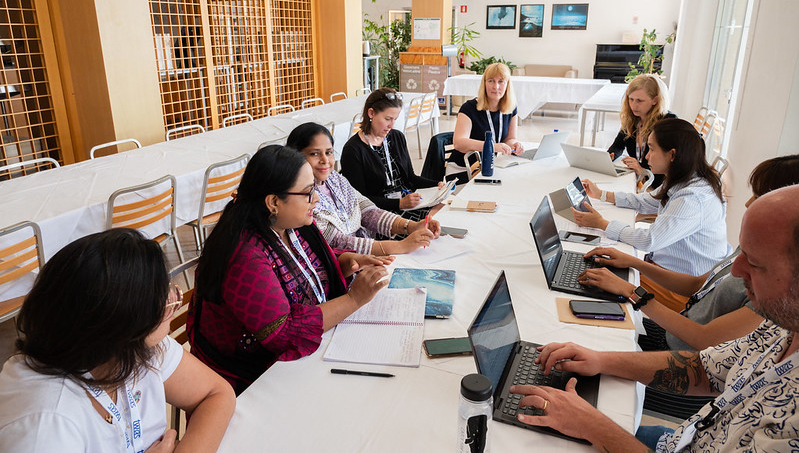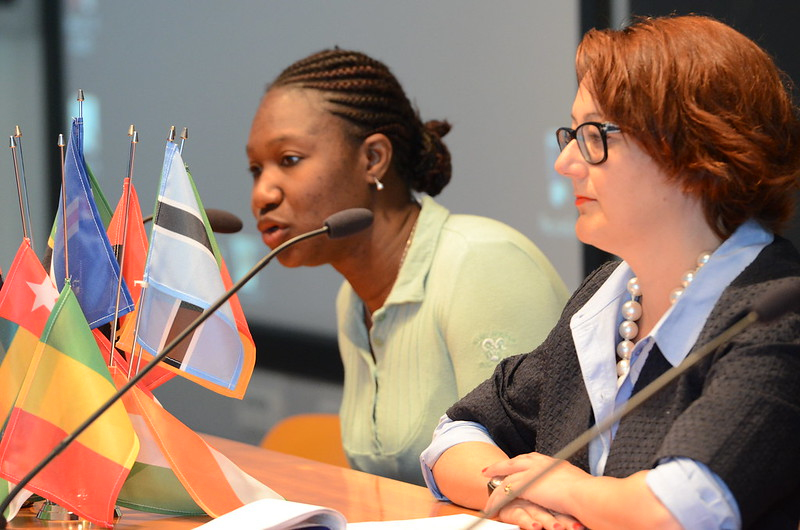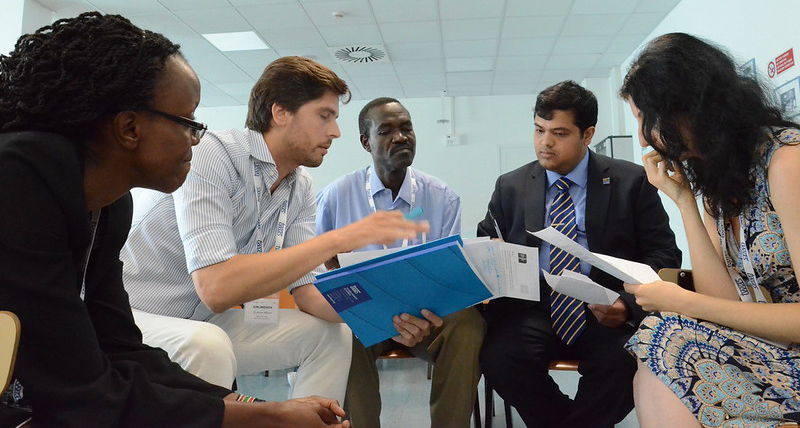TWAS offers a framework for forming a taskforce among its Arab members for a common strategy in an increasingly prominent area of expertise: science diplomacy. I offer this essay to lay out the case for greater involvement among the Arab scientific community in this important field. I also lay out the basic concepts underpinning science diplomacy and put forward some ideas for a possible debate on this major question.

Linking science and diplomacy for peace
Diplomatic relations between states involve a variety of factors, including economics, culture, education and science, in addition to continuous political dialogue. These relations are implemented through exchange of accredited representatives whose mission is to promote the country’s image in the world.
The concept of science diplomacy has emerged only recently as an integral part of diplomacy, whereas science-based diplomatic acts have existed for many years. Cultural and scientific attachés count among the staff of embassies in charge of managing relations between states in these areas, supervising among other things a variety of exchange programmes for students, researchers and academics.
Science involves ideas, methods and logic. Its essence is humanity’s intellectual capacity ignoring geographical borders, whereas diplomacy is more of a political nature, and is mainly driven by national interests. Yet science and diplomacy are linked, and this link serves to build bridges between people in different parts of the world to collaborate toward a mutual peace.
There are three categories of science diplomacy. When we speak of the role of science in diplomacy, we refer to the recommendations made by scientists to authorities as a guide in the decision-making process. Such recommendations stem purely from conclusions of scientific studies. Diplomacy for science concerns the efforts made by diplomats to facilitate exchanges between scientists, and develop international research and collaboration programmes. Science for diplomacy is when science helps reduce tensions in international relations by strengthening relationships between scientists from multiple nations as they work on collaborative projects.
![TWAS Fellow Mustapha Benmouna of Algeria with students in his lab. [Photo provided]](/sites/default/files/styles/cke_media_resize_large/public/media/benmouna-with-students.jpg?itok=04eoiMaQ)
Science diplomacy flourishes under globalization
Globalization is a key concept for science diplomacy. The best reference to this comes from the United Nations (UN) which has several institutions devoted to collaborations between two or more states, addressing global challenges from the scientific point of view.
Typical institutions and programmes are: the United Nations Educational, Scientific and Cultural Organization (UNESCO) sponsoring for example, the intergovernmental programme ‘Man and the Biosphere’ that aims at improving the quality of life in the environment. Other examples include the World Health Organization (WHO) that has managed the health crisis caused by COVID-19, and the International Atomic Energy Agency (IAEA) that promotes the use of the atom in peaceful applications.
The World Academy of Sciences for the advancement of science in developing countries (TWAS) is administered as a UNESCO programme unit and enjoys a long-standing experience in science diplomacy. Together with the International Centre for Theoretical Physics (ICTP), where TWAS is hosted, TWAS offers programmes to scientists around the world with a variety of possibilities in research at the cutting edges of progress.
The global community has already seen several successes in science diplomacy. One is the Centre for Nuclear Research (CERN) located near Geneva in Switzerland and counting 23 European nations as its member states. In turn, CERN helped establish the Synchrotron-light for Experimental Science and Applications in the Middle East, known under the acronym SESAME, representing a top research centre for physics in the Arab world. SESAME is based in Jordan and has eight member states from the Middle East. Another major success of science diplomacy is the International Space Station (ISS), put into orbit in 1983.

Integrating science diplomacy with soft power
Diplomacy is designed according to the country’s interests, and is permanently reshaped to accommodate for changes according to what a given nation-state prioritizes. It develops strength from the country’s economy, wealth and social welfare, but also from where it stands in terms of scientific and technological achievements.
To understand the behaviour of countries in a diplomatic arena, it’s important to distinguish between hard power and soft power. Some countries adopt a hard power posture by putting forward their military strength, not hesitating to embark in armed conflicts to impose their views. Others privilege a soft power approach and try their best to resolve problems by dialogue in a peaceful way.
Science diplomacy is well-suited to be integrated within a soft power approach via exemplary partnerships between different nations. China is often cited as a typical example of soft power by succeeding to construct a nexus of partnerships, mainly of scientific and technological nature, all over the world, in particular with emerging countries in Africa, Asia and Latin America. The success of science diplomacy requires an ingenious combination of good diplomacy and an attractive ecosystem for scientific training and research.

An appeal for Arab scientists to join in science diplomacy efforts
There are many areas where the Arab region and all its peoples could benefit from increased scientific involvement in the diplomatic arena. I offer four potential areas for intensive discussion among Arab scientists to seek common avenues for action, and for diplomatic decision-makers to consider the benefits of scientific support.
Energy, in particular, offers a unique opportunity for Arab countries to collaborate and develop a common strategy which could lead to a higher impact in shaping the world energy policy. Arab scientists could start with a common programme of training and research beyond oil and natural gas technologies, preparing for a smooth transition to renewable energy sources.
The water crisis, from which most Arab countries suffer, represents a vital issue of concern for both scientists and policy makers. Indeed, Arab countries in general, and Algeria in particular, are among the most stressed in the world in terms of water scarcity, and suffer more because of their overwhelming rural lifestyle with a predominant agricultural character. Desalination of seawater adopted by several Arab countries in the Middle East and North Africa can be an interesting area of collaboration. An opportunity already exists here on a topic at the edge of progress. In the search for the best compromise between effectiveness and costs, novel materials are being tested for the design of efficient membranes that exhibit fine structures at the nanometre scale.
Another subject of common interest is the food security challenge. Arab countries can gain much by exchanging their experiences in production, storage, distribution and marketing networks for food. Strong agriculture requires water, energy and equipment that satisfy standards for quality. Also, desertification, water scarcity, soil erosion, unsustainable agricultural practices and the use of chemicals such as pesticides represent challenges which can be handled in a continuous dialogue to set the framework for a common policy. Algeria has a particular experience with the desertification phenomenon. A green dam megaproject was initiated in the early 1970s by planting millions of trees over 3 million hectares. Sharing information on this green dam can be a useful contribution by Algeria to science diplomacy in the Arab region.
Artificial intelligence is yet another domain open for fruitful cooperation between Arab states. The development of computer technologies both in hardware and software, the big data revolution, and the rapid rise of research interests from 2010, have made artificial intelligence a societal phenomenon. Some Arab states like the United Arab Emirates are world leaders in this domain and could help other Arab countries catch up quickly in this fast-progressing domain that must develop taking both equity and ethics into account.
Mustapha Benmouna

